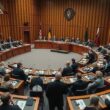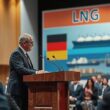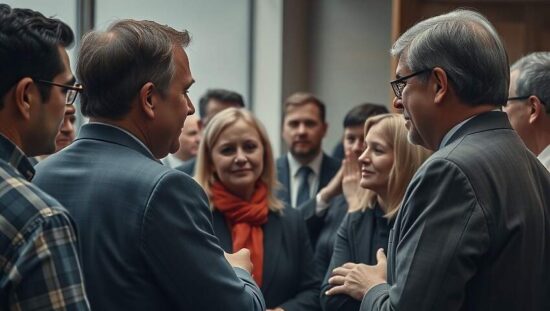The latest Forsa poll paints a picture of political stagnation and deepening public discontent in Germany. The far-right Alternative for Germany (AfD) maintains its lead as the strongest political force, garnering 26 percent of the electorate, narrowly ahead of the center-right CDU/CSU bloc at 25 percent. The Social Democrats (SPD) linger at 14 percent, followed by the Greens (12 percent), the Left Party (11 percent) and the Free Democratic Party (3 percent), all holding steady from previous weeks. The recently formed BSW (Bundnis Sahra Wagenknecht) has also rebounded, reaching the crucial 3 percent threshold.
Notably, a significant 26 percent of voters identify as undecided or non-voters-a figure exceeding the 17.9 percent recorded for the 2021 Bundestag election, suggesting a widespread sense of disillusionment, potential apathy, or strategic abstention.
The poll reveals a disturbing lack of confidence in the ability of any party to address the nation’s challenges. While the CDU has marginally improved its perceived competence to 17 percent, the AfD’s rating dipped to 13 percent, highlighting shifting voter sentiments rather than a fundamental belief in leadership. The SPD and Greens trail at 5 percent, while the Left Party manages 4 percent. Crucially, a resounding majority – 54 percent – express the view that no party is capable of solving the country’s problems, underlining a prevailing sense of political inadequacy.
Adding to the narrative of declining leadership, Chancellor Friedrich Merz of the CDU is facing an unprecedented crisis of confidence. Public satisfaction with his performance has hit a new low, with only 23 percent approving of his work, a two-point decline from the previous week. A staggering 75 percent now express dissatisfaction, representing the poorest approval rating since he assumed office. This discontent is not confined to the broader electorate; even within his own party, cracks are appearing. A majority (52 percent) of CSU voters are now expressing their dissatisfaction with Merz, compared to a mere 48 percent who remain satisfied. Only amongst staunch CDU supporters does a majority approval (58 percent satisfied, 48 percent dissatisfied) persist. Across the SPD, Green, Left and AfD constituencies, disapproval overwhelmingly dominates.
The survey also reflects a pessimistic economic outlook. Only 15 percent anticipate an improvement in the economic situation, while a substantial 60 percent expect a deterioration. A further 23 percent foresee no change, solidifying a pervasive sense of unease about the country’s financial future and potentially fueling further political instability and voter volatility. The combination of weak leadership perceptions and a bleak economic forecast suggests a deepening crisis of confidence within the German political landscape.





